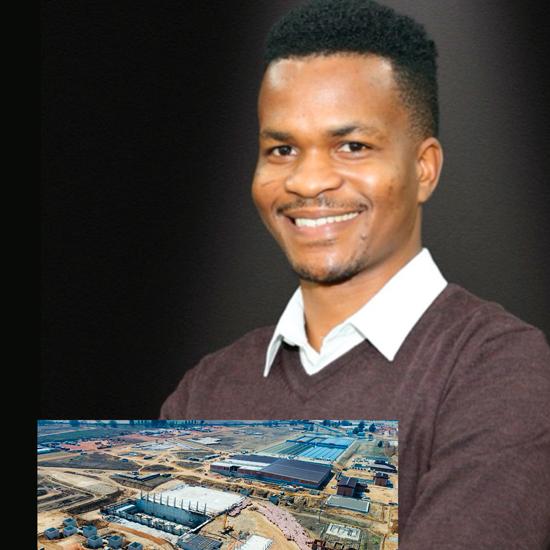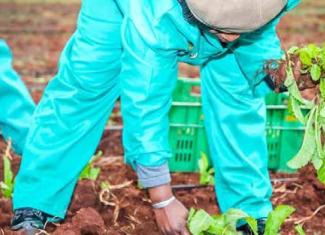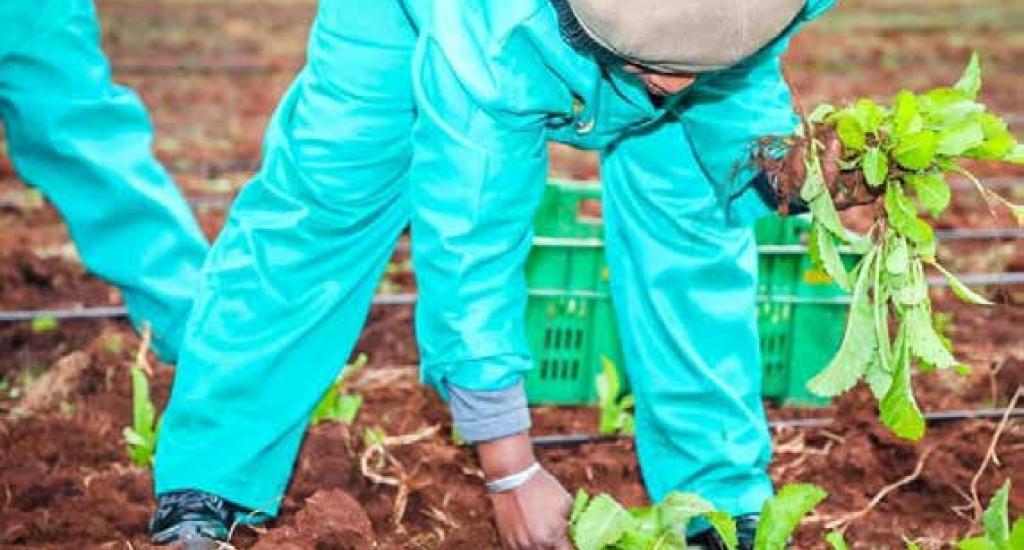Dr Bonginkosi Thango’s
remarkable journey to academic excellence

At just 33 years old, Dr Bonginkosi Allen Thango has carved a reputation as one of South Africa’s most promising minds in engineering and academia. From his humble beginnings in Ermelo, Mpumalanga, to his recognition as a nominee in the TW Kambule-NSTF Award: Emerging Researcher category at the 2025 NSTF-South32 Awards, his story is a powerful testament to perseverance, vision and the pursuit of societal impact.
“After high school I went to the Tshwane University of Technology Emalahleni Campus, where I enrolled for a National Diploma in Electrical Engineering,” he recalls.
But electrical engineering was not his first choice. “Where I come from, the perception about electrical engineering is that it is about fixing kettles, fridges and microwaves, so I was not really keen on going this route. I wanted to do applied maths and statistics. At first, I hated the course and even planned to change it in the second year. But as soon as I finished my diploma, something just changed and I finally understood what electrical engineering was about, hence I went on to do my BTech [Bachelor of Technology]”.
After obtaining his diploma, Thango entered the professional world through an internship at PowerTech Transformers (now SGB-SMIT Power Matla), a Pretoria-based multinational. What began as an entry-level role soon expanded into a rich learning curve.
“I worked for about four years. My first role at the company was as technologist-in-training under the Research and Development Department, which I think shaped my professional trajectory. The following year, I was moved up to engineering and design. I was [also] moved to sales. I got exposed to basically the entire value chain of the business, especially manufacturing”.
Moving to academics
Despite thriving in industry, academia called, thanks to persistent encouragement from a colleague. “He insisted every time he saw me. In fact, he gave me a deadline of September that year. He even shared with me the vacancy post and urged me to apply because he thought I would be the perfect fit”.
Reluctantly, Thango applied for a lecturer post at University of Johannesburg. To his surprise, he was shortlisted, interviewed, and appointed.
Since then, his academic star has risen quickly. By 2023, he was promoted to Senior Lecturer and in 2024, he earned recognition as a Y2 NRF-rated researcher. Alongside his Doctor of Engineering, he obtained his Master of Business Administration (cum laude) from the Johannesburg Business School in 2025, and is currently pursuing a PhD in Business Science at Wits.
Looking back, he admits academia was always latent within him. “When I was growing up, I did not think someone could specifically go into academia, but in primary and high school I would help teach my friends. Even though I was a shy child, teachers would ask me to come to the front of the classroom and help explain to my peers how I solved maybe an equation”.
Addressing daily challenges through engineering
Thango is of the view that engineering knowledge must be more than technical – it must impact communities. “We spend all this time learning engineering principles and fundamentals, but we need to drive back that knowledge into our communities to solve problems.”
This philosophy came alive during the 2023 cholera outbreak in Hammanskraal. “When I saw that on the news, I asked myself how it was possible that water was released for people to consume if it was not properly tested. From what I learnt, they do not have real-time water monitoring tools that report on the state of the purified water. They rely on the old method, hence we have these issues”.
Ground-breaking solutions
His work on the Internet of things (IoT)-based real-time water quality monitoring systems directly addresses such challenges. The system provides immediate data on water safety, helping authorities prevent contamination crises before they happen. This groundbreaking contribution is at the heart of his NSTF-South32 Awards nomination — a recognition he describes as both humbling and affirming.
“To get recognition for your efforts is truly special. To be considered for nomination in the science Oscars, for me, is a reaffirmation that I have finally taken the right direction into driving societal impact,” he reflects.
Inspired by culture
Among his proudest contributions is the Lobola Negotiation Optimization algorithm, a culturally inspired metaheuristic approach to solving engineering problems.
“The inspiration for this algorithm is the process of lobola. Usually, it is a three-step process. The first step is the initiation phase, where the groom’s family will send a letter to the bride’s family to set up a date. The intelligence part is in the second phase; the negotiators are selected, they deliberate, looking at different cultural aspects until they reach an optimal solution. My algorithm can be used to solve engineering problems to say ‘how do you choose the best amount of material to build, for example, a bridge’”.
The algorithm has already demonstrated strong results against established methods in benchmark engineering problems, positioning it as a uniquely African contribution to global research.
Modernising Agriculture
Another area where Thango’s work intersects with everyday life is agriculture. Together with his colleague, Professor Lawrence Obokoh, he is spearheading the IoT-enabled Precision Farming Smallholder Vegetable Production project for the Gauteng Department of Agriculture and Rural Development project.
The initiative seeks to design and deploy a low-cost IoT precision farming system to improve productivity, efficiency, and climate resilience for smallholder vegetable farmers. Using ESP32 microcontrollers and open-source sensors, the system collects real-time data on soil and environmental conditions, including moisture, temperature, pH, salinity, light and the weather.
“This data is sent to a Firebase cloud platform, where farmers, extension officers and agronomists can access insights via a mobile or web dashboard to guide irrigation, fertigation and crop management,” he explains.
By addressing declining yields, inefficient water use, high input costs and climate variability, the project aims to enhance food security and create jobs in local assembly, deployment and support services.
“Visual dashboards and automated alerts will enable inclusive participation, even for farmers with low literacy levels, while advancing resilient, efficient and competitive vegetable production in Gauteng.” V




